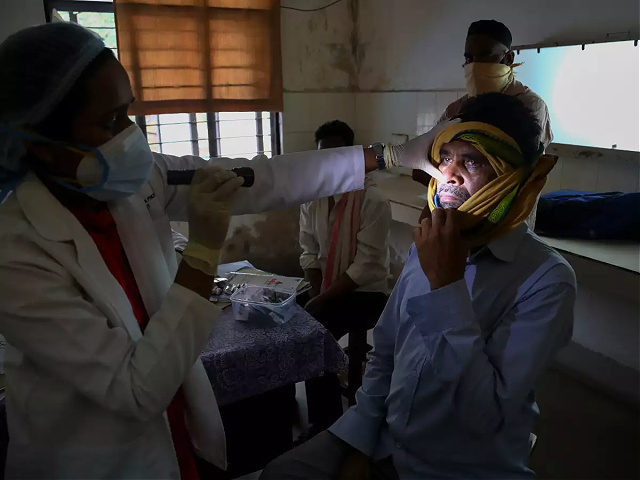Jammu and Kashmir, India, declared an epidemic of the fungal infection mucormycosis, also known as “black fungus,” on Monday after the disease was found to be closely linked to a recent surge in Chinese coronavirus cases in the area.
Jammu and Kashmir is an Indian “union” or federal territory governed by India’s central government in New Delhi. The Indian central government declared mucormycosis an epidemic in Jammu and Kashmir on May 23. New Delhi directed all health facilities in the territory to follow federal guidelines for the outbreak’s management.
“According to the notification, all the government and private health facilities and medical colleges [in Jammu and Kashmir] are required to follow the guidelines for screening, diagnosis, and management of the disease issued by the [Indian] Ministry of Health and Family Welfare (MoHFW), Indian Council of Medical Research (ICMR), and J&K [Jammu and Kashmir] government as amended from time to time,” the Press Trust of India (PTI) reported on May 24.
All medical facilities in Jammu and Kashmir must now report suspected and confirmed cases of mucormycosis to federal health officials through district-level officers and India’s Integrated Disease Surveillance Program (IDSP).
“[N]o person, institution or organization will use any print, electronic or any other media for Mucormycosis without prior permission from Director Health Service Jammu/ Kashmir [sic],” New Delhi further instructed.
Jammu and Kashmir reported its first mucormycosis-related death on May 21.
“The patient was admitted on May 19 and mucormycosis in him was detected on Thursday [May 20]. He had recovered from Covid-19 [Chinese coronavirus] recently,” Dr. Shashi Sudan of Jammu’s Principal Government Medical College (GMC) told Indian media on May 21, according to the Deccan Herald.
Dr. Sudan added that the patient was suffering from “uncontrolled diabetes” at the time of his death and that he “had contracted the disease [mucormycosis] due to the long-term use of steroid drugs.”
“The Union [Indian federal] health ministry last week said the disease [mucormycosis] is being detected among patients who are recovering or have recovered from Covid-19 [Chinese coronavirus],” the Deccan Herald recalled on May 21.
“The disease is caused by a set of micro-organisms known as mucormycetes, which are present naturally in the environment seen mostly in soil and in decaying organic matter like leaves, compost, and piles [sic]. It is a rare and deadly disease that has a mortality rate of 50 to 80 percent,” according to the newspaper.
Mucormycosis, as a potential complication of the Chinese coronavirus, has further burdened India’s healthcare system as it fights a resurgence of coronavirus across the country that launched in early April.

COMMENTS
Please let us know if you're having issues with commenting.